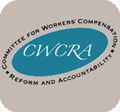| Home | Press Home | In the News | GOP insider looks for palatable budget cuts; Economist prepares plans for Schwarzenegger
September 14, 2003 GOP insider looks for palatable budget cuts; Economist prepares plans for Schwarzenegger Sam Zuckerman, SF Gate.com
Arnold Schwarzenegger’s top fiscal adviser says he is drawing up several budget options that would avoid new taxes while imposing spending cuts that he insists won’t cause widespread hardship. John Cogan, the conservative Stanford University economist who also drafted George W. Bush’s tax cut proposal during the 2000 presidential campaign, said in an interview that the cutbacks needed to wipe out California’s budget deficit would still leave spending significantly higher than in 1999. That’s when a stock market boom started swelling the state’s revenue and expenditures, only to be followed by a crash that caused tax receipts to plunge in 2002. The shortfall, sometimes calculated as high as $35 billion over several years based on projected spending trends, amounts to $8 billion next year on a cash basis. “If you want to eliminate the $8 billion budget gap by relying on spending reductions alone, you’d have to make some serious reductions from current levels of spending,” Cogan said. “But if you do those cuts properly and with care, you don’t have to devastate education and tear the social safety net. You could achieve a balanced budget and still have spending 28 percent higher than it was before the explosion of expenditures after 1999.” Cogan’s name is unfamiliar to the public but widely known in policy wonk circles. In the Schwarzenegger campaign, his profile is lower than former Treasury Secretary George Shultz, his colleague at Stanford’s Hoover Institution. But Cogan has drawn the critical job of overseeing the budget planning process and turning the candidate’s anti-tax pledge into real policy. Backing him up are Shultz and former White House economic adviser Michael Boskin, another Hoover fellow, as well as advisers from other conservative think tanks. “Cogan is a smart and persuasive economist with a strong real-world bent,” said Stanford economist Gregory Rosston. “He gave a talk at Stanford in 2000 saying that the Bush tax cuts would not lead to budget deficits. He had the guts to come back to the same group when the deficit had ballooned and explain why his earlier assumptions had not come true.” Cogan says that the recession and anti-terrorism spending are the main factors behind exploding federal deficits. For their part, Schwarzenegger campaign officials play down Cogan’s role, identifying him as one of several advisers who have the candidate’s ear. “Arnold respects him greatly,” said policy director Paul Miner about Cogan. In preparing a budget plan for Schwarzenegger, Cogan said he is guided by the belief that California is at a turning point in deciding what economic path to follow. “The choices are stark,” Cogan said. “We are either going to solve this budget problem with higher taxes, which would be detrimental to California’s future. Or we are going to paper over the problem and engage in deficit spending that is constitutionally dubious. Or we’re going to solve it by reducing spending. If we choose the latter path, California will have a much brighter economic future.” Cogan didn’t specify where he believes California’s spending can be cut, other than to note that Schwarzenegger has ruled out reductions in elementary and secondary education. Deep budget cuts would be “tough medicine,” Cogan acknowledged. But the hardship would be limited, he argued, because state spending has risen 35 percent since 1999. Budget experts maintain that Cogan is underestimating how hard it will be to achieve balance through spending cuts alone. Significant portions of state spending are unavoidable because of programs authorized by state voters or required by federal law. For example, federal law mandates minimum benefit levels for Medi-Cal, the state’s low-income health care program. “It’s devilishly hard,” said Ted Gibson, former chief economist for the California Finance Department. “If education is off the table, you’re left having to go after the universities, the prisons and a bunch of miscellaneous programs that make up just 15 percent of the budget.” Economists also worry that spending cuts would take money out of California’s economy just when it is needed to help the state recover from recession. But the state Constitution doesn’t permit the option that’s available to the federal government — cutting taxes and boosting spending at the same time to stimulate the economy. Given the choices California faces, it’s better to cut spending and avoid raising taxes, Cogan said. “Higher taxes would seriously harm the economy in its weakened state,” he said. “It would cause more job losses and prompt more businesses to exit the state.” On the other hand, spending cuts that balanced the state’s budget could actually help the economy, he said. “Businesses that would otherwise locate here don’t locate here because of the financial uncertainty,” Cogan said. Budget watchers are paying close attention to how Cogan and his colleagues balance principle and practicality in devising a state spending plan. “It’s really important to see if they will step away from principles if it turns out they can’t get to where they need to be with cutbacks alone,” said Kim Rueben, a budget specialist at the Public Policy Institute of California. “We will see whether they end up doing what (Republican Gov.) Pete Wilson did (in the early 1990s) and raise taxes.” |
| | Monday, June 7, 2004 | | |
 | |
| Home | |
| CALIFORNIA RECOVERY TEAM | |
| About CRT | |
| GET INFORMED | |
| About Arnold | |
| Leadership | |
| Endorsements | |
| News Room | |
| Opinion | |
| JOIN THE TEAM | |
| Contribute | |
| Volunteer | |
| Share Your Views | |
| SERVICES | |
| Image Center | |
| Multimedia Center | |
| Downloads | |
| Search News | |
| Privacy Policy | |
| Contact Us | |
| ||||||||||||||||
|
Contact Us Privacy Policy |
Copyright © 2003 |


